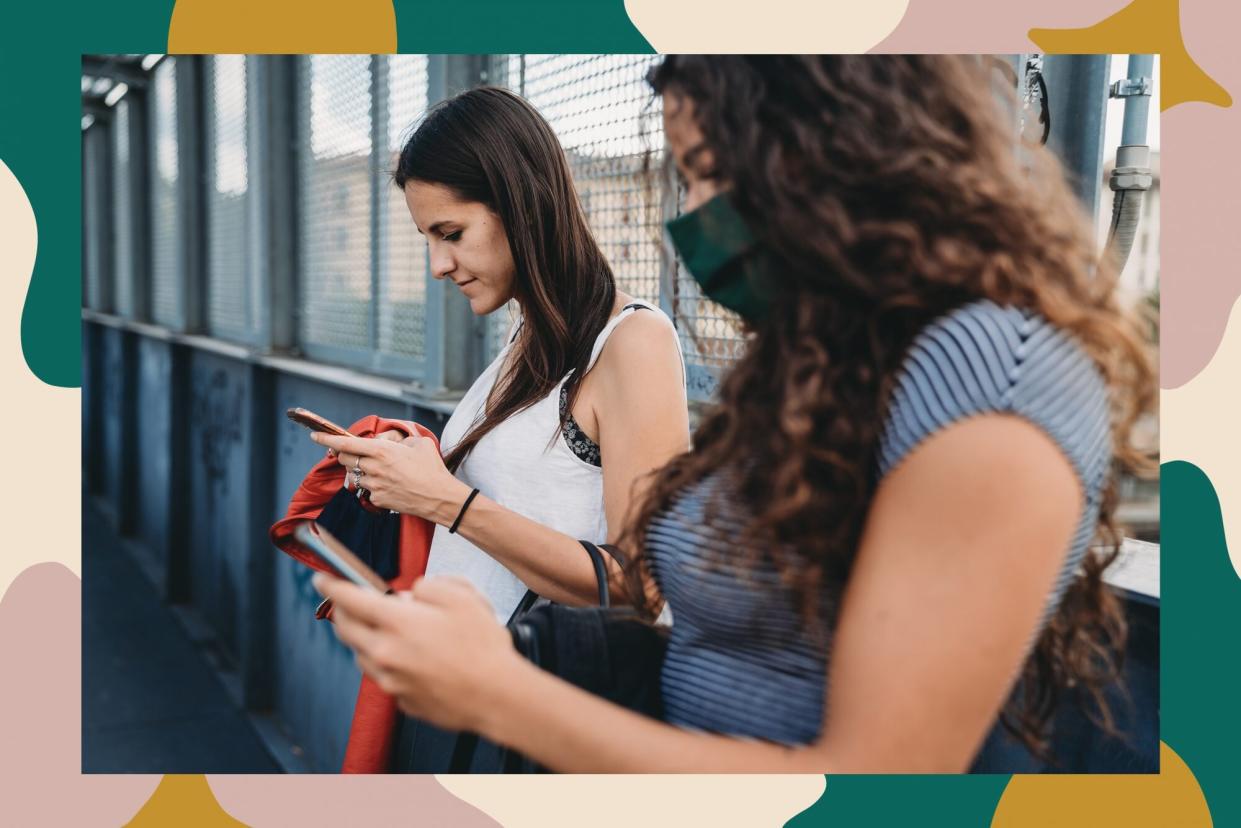Is This Normal? I Want to End My Friendship Over Their Lack of COVID-19 Concerns

- Oops!Something went wrong.Please try again later.
Getty Images
You've got embarrassing, tricky, and otherwise unusual life questions. We've got answers. Welcome to Is This Normal?, a no-nonsense, no-judgment advice column from HelloGiggles in which we tap experts to find out exactly how typical (or not) your situation is.
Dear Is This Normal,
I'm really struggling with one of my friends during this pandemic. We agreed that we'd be in each other's "COVID pod," but recently I found out that she was hanging out with another group of friends, indoors and without masks. She's also eaten indoors a few times when this is something we said we wouldn't do. (I found out because another friend told me.)
This bothers me because a) it's making me feel unsafe and b) I've lost my trust in her. I have asthma and take COVID-19 really seriously, so it hurts me that she's behaving in a way that puts my trust and health at risk. Is it unreasonable to want to stop being friends because of this? I don't want to be too dramatic.
-Torn and Distrustful
__
Dear Torn and Distrustful,
First of all, I don't think you're being too dramatic. It's a shock when friends lie or hide things from us, particularly when that lie puts us at risk. And right now is a totally unprecedented time, making the truth feel even more important somehow. While vaccines are starting to circulate, coronavirus (COVID-19) cases are extremely high right now—and it's something we should all be taking very, very seriously. I'll also say, however, that people have different interpretations of what "seriously" means. Some think it means just wearing a mask, and others believe it means staying home entirely.
"This pandemic has brought to light many different aspects of ourselves, [our] beliefs, and [our] value systems, and we're also seeing this reflected in those around us," says Lindsey Cooper-Berman, associate marriage and family therapist. "If you are uncomfortable with a friend's behavior and believe [they're being] unsafe during the pandemic, setting boundaries for yourself with them and how you choose to interact is key."
"With this said," Cooper-Berman adds, "the behaviors [of your friends] may reveal a deeper fundamental difference that is incongruent with your [values] that hadn't been revealed yet. Self-care is even more important now than ever, and that includes the relationships and friendships in our lives."
In other words, if your friend is making you feel betrayed or unsafe because of a misalignment with your values, it's more than okay to set boundaries. It sounds like you imagine this boundary to be a "friend breakup" or ending the relationship entirely. And while that might be the right choice for your scenario, I don't personally have enough details to tell you whether or not to end this relationship.
Does your friend conduct their behavior in other ways that upset you? Have you already talked to them about this, and have they adjusted, or are they ignoring you? Have they been a good friend otherwise? And maybe, most importantly, do you want to break up with them?
If the answer is no, then consider setting more temporary boundaries: I have a pre-existing condition, and I don't feel safe spending time with you if you're going to continue to expose yourself in ways that I feel are dangerous. If the answer is yes, then a friend breakup might be in order.
"There are many reasons why friendships may end or we may drift away," says Cooper-Berman. "I would encourage anyone to look at their past and current friendships to figure out if there have been any patterns of friendship breakups to examine if there are reoccurring themes or red flags. Or maybe there's something within you that comes up when there's an increase in intimacy when it comes to friendships."
After all, friend breakups are entirely normal. Like any relationship, friendships can also end, shift, and change. And just like ending a romantic relationship, ending a friendship can really, really hurt.
If you do choose to break up, "be gentle with yourself," says Cooper-Berman. "There may be anger and hurt from your friend as well as within yourself."
Cooper-Berman also notes that healing from a friend breakup looks similar to healing from a romantic relationship. Depending on how close you and this friend were or what your history looks like, it might take some time to ease through the grieving period.
"Allow yourself to experience the whole range of emotions that arise throughout the breakup and the aftermath," says Cooper-Berman. "Day by day, the healing will happen if you walk towards the hurt rather than avoiding [it]. Also, open yourself [up] to gratitude for the experiences [you] had and what the future may bring."
Conflict between friends is hard—and it's certainly the type of thing that ought to be normalized. Don't be afraid of asking yourself the difficult questions, making a decision, and, if it feels right, putting the friendship on pause or simply letting it go. But as Cooper-Berman says, you can work toward healing by practicing gratitude and moving into the future with an open mind to what is to come.

